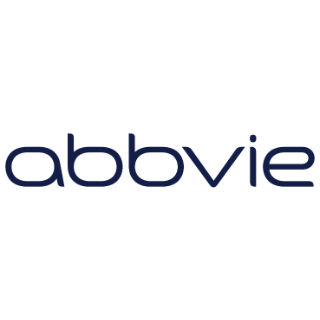 AbbVie has announced that the U.S. Food and Drug Administration (FDA) has accepted its New Drug Application (NDA) and granted priority review for the company’s, all-oral, interferon-free, two direct-acting antiviral treatment of ombitasvir, paritaprevir, ritonavir (OBV/PTV/r), with ribavirin (RBV). The NDA is for the treatment of adults with chronic genotype 4 (GT4) hepatitis C virus (HCV) infection.
AbbVie has announced that the U.S. Food and Drug Administration (FDA) has accepted its New Drug Application (NDA) and granted priority review for the company’s, all-oral, interferon-free, two direct-acting antiviral treatment of ombitasvir, paritaprevir, ritonavir (OBV/PTV/r), with ribavirin (RBV). The NDA is for the treatment of adults with chronic genotype 4 (GT4) hepatitis C virus (HCV) infection.AbbVie’s regimen is the first all-oral, interferon-free therapy being evaluated by the FDA for patients in the United States with chronic GT4 HCV infection. This submission affirms the company’s commitment to seeking access to curative* therapy for patients living with chronic HCV infection (*curative is defined as when the virus is no longer detectable in the patient’s blood 12 weeks after treatment ends; sustained virologic response [SVR12]).
The FDA granted priority review to AbbVie for the regimen based in part on data from the PEARL-I study, which was recently published online in The Lancet. The FDA grants priority review designation to investigational therapies that treat a serious condition and, if approved, would provide a significant improvement in safety or effectiveness. This designation shortens the regulatory review period for non-new chemical entity NDAs from the normal 10 months to six months. AbbVie’s regimen was also granted a Breakthrough Therapy designation by the FDA on June 30, 2014, a status given to investigational treatments for serious or life-threatening conditions with preliminary clinical evidence that may demonstrate substantial improvement on at least one clinically significant endpoint compared to available therapy.1
“We are pleased that the FDA has granted priority review for our all-oral, interferon-free treatment for patients with chronic GT4 HCV infection,” said Michael Severino, M.D., executive vice president, research and development and chief scientific officer, AbbVie. “Submission of this NDA further underscores AbbVie’s commitment to developing therapies to treat a wide range of patients living with chronic HCV infection.”
PEARL-I is an open-label, Phase 2b study that demonstrated 100 percent of GT4 patients without cirrhosis who were new to therapy (n=42/42) or who had failed previous treatment with pegylated interferon (pegIFN) and RBV (n=49/49) achieved SVR12 after receiving OBV/PTV/r and RBV for 12 weeks. Additionally, 91 percent of patients who were new to therapy achieved SVR12 (n=40/44) after taking the treatment without RBV.
The Centers for Disease Control and Prevention (CDC) estimates that in the United States, 3.2 million people are chronically infected with HCV.2 While genotype 1 (GT1) is the most prevalent form of HCV in the U.S., accounting for approximately 73 percent of all cases, GT4 infection accounts for up to 6 percent of HCV infections.3,4 Hepatitis C is inflammation of the liver caused by an infection with HCV.5 It is transmitted when an infected person’s blood enters the bloodstream of another person.6 There are six major HCV genotypes (GT1-6).7 Presently, there is no vaccine for HCV infection.2
Source: AbbVie
Filed Under: Drug Discovery



